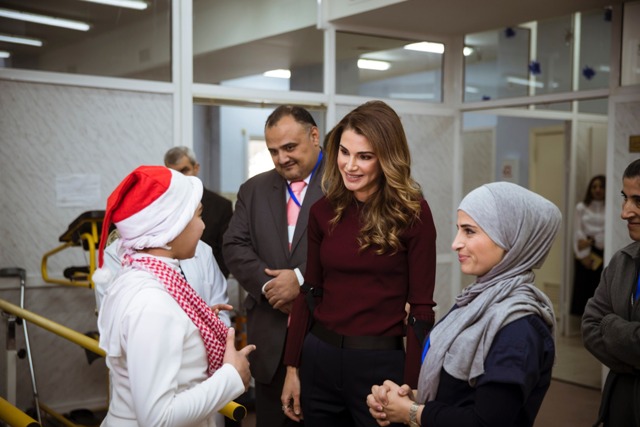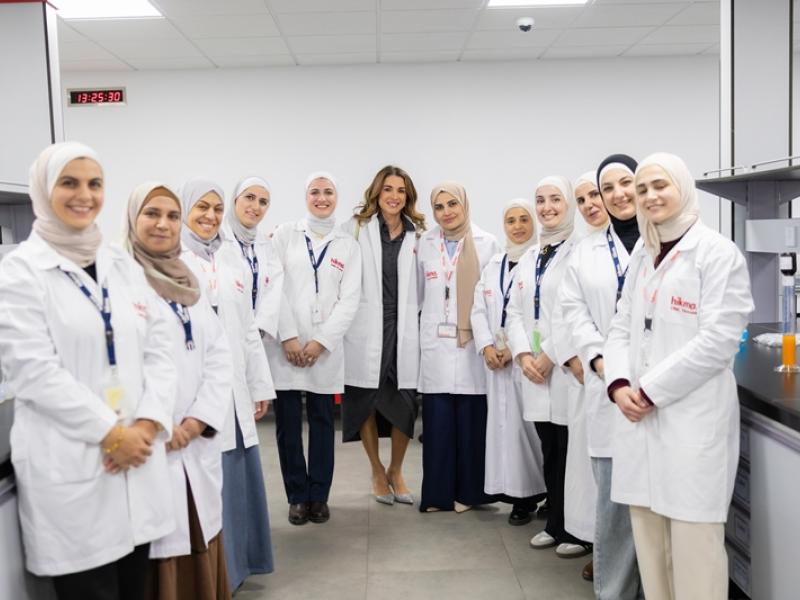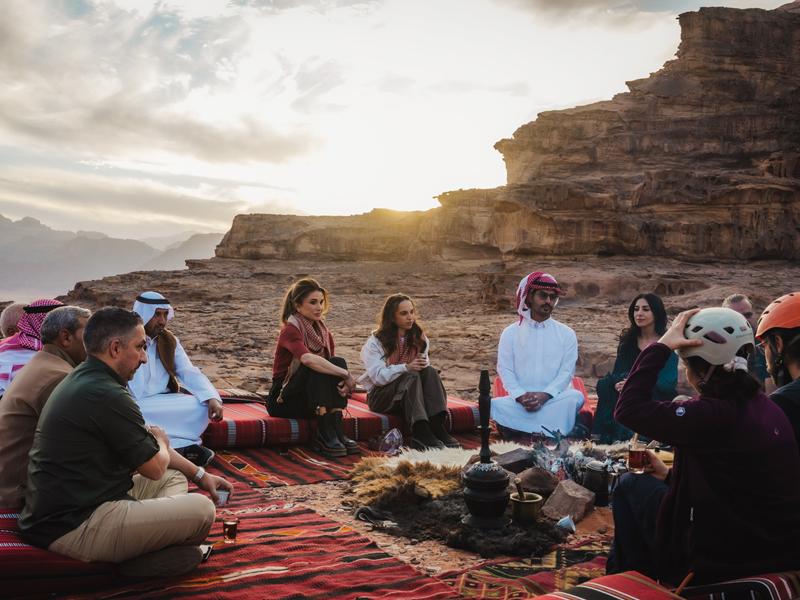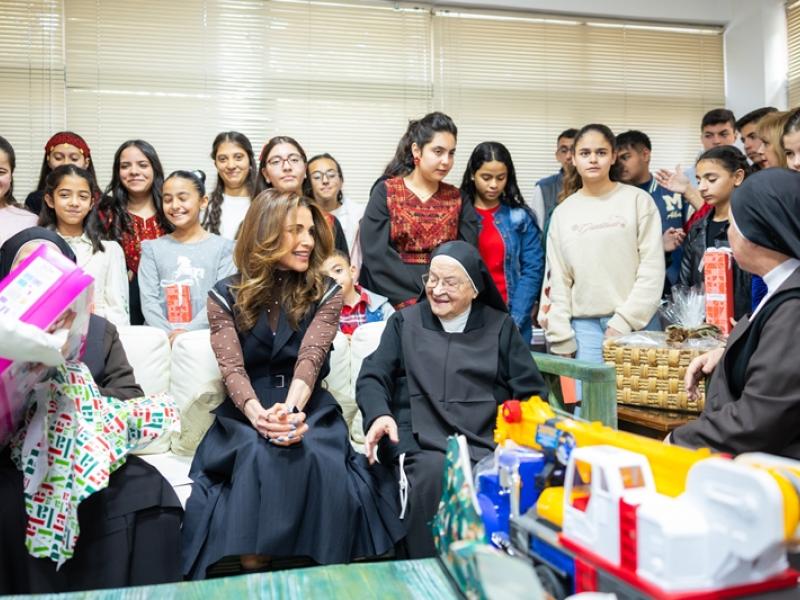(Office of Her Majesty – Press Department – Amman) - Her Majesty Queen Rania Al Abdullah visited Our Lady of Peace Center for Persons with Disabilities, on Sunday, which runs several programs that aim to integrate people with disabilities into society.
Her Majesty was welcomed by His Excellency Bishop William Al Shomali, the center’s Director, Father Shawqi Batrian, its Executive Director, Sahem Madanat, and Sister Radieh Assafin, who showed her around the facility, while volunteers and refugee families working at the Center briefed the Queen on its outreach efforts and services.
While touring the Center, Her Majesty met with children receiving treatment for their disabilities at the physiotherapy and occupational therapy departments. She also joined activities for children and their mothers in the center’s main hall.
The center was established by the Latin Patriarchate, and Inaugurated in 2004, with the objective of offering free social, humanitarian, and spiritual rehabilitation services to people with disabilities regardless of social status or religious affiliation.
The center currently runs two separate branches; a main branch in Amman and a secondary one in Aqaba. The Amman branch houses six different operational departments, each targeting a particular area of care. The center’s services include developing the cognitive skills of children with mild to moderate mental disabilities, providing counseling to autistic and mentally disabled children and their families, offering speech, physical and occupational therapy, and constructing custom artificial limbs for patients who have undergone amputation or poorly conducted surgical procedures.
Seeking to minimize the toll of physical disability on patients and their families, the center has also established various physiotherapy units in Fuhais, Zarqa, Mafraq, and Anjara.
Additionally, the center welcomes many volunteers as part of its efforts to increase awareness about the correct caretaking methods for people with disabilities.



